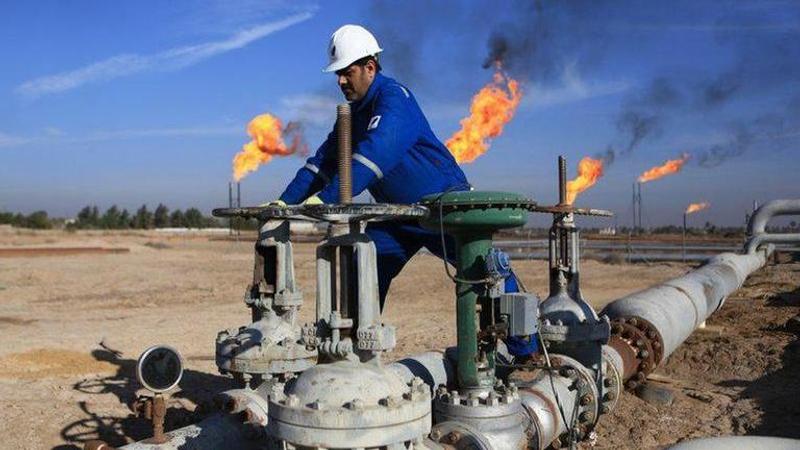Published 18:44 IST, April 27th 2020
US grants Iraq another month's waiver for Iran gas imports
The U.S. has again granted Iraq only a month-long sanctions waiver enabling the government to continue importing gas and electricity from Iran, two Iraqi officials said, a sign of Washington’s growing impatience as a deadline looms for Iraq’s latest prime minister-designate to form a government .

The U.S. has again granted Iraq only a month-long sanctions waiver enabling the government to continue importing gas and electricity from Iran, two Iraqi officials said, a sign of Washington’s growing impatience as a deadline looms for Iraq’s latest prime minister-designate to form a government .
The issuance of another 30-day waiver was communicated the Iraqi government in a phone call from the U.S. State Department, without a formal notification in writing, the two Iraqi officials said, speaking on condition of anonymity because they were not authorized to speak to the media.
The latest exemption is the second time the U.S. has issued a relatively small window of time for Iraq to prove it is making progress in becoming less reliant on Iranian imports, a key condition to qualify for the waiver. Earlier, a 30-day waiver was granted for March and it expired on Sunday. Previous waivers had lasted three to four months.
It comes as Prime Minister-designate Mustafa Kadhimi faces push back to his proposed lineup of ministers. A constitutional deadline for him to present a Cabinet to Parliament runs out next week. Key blocs, including Fatah, which includes parties with links to Iran-linked militia groups, have opposed his choices.
Iraq depends on Iranian energy imports to meet one third of its energy needs, especially during the scorching summer months.
The last exemption in March was issued alongside sanctions against 20 individuals and entities that the State Department said had been taking advantage of the waivers to funnel money into Iran.
Iraq had recently announced it was looking into possibilities of importing gas from the northern, semi-autonomous Kurdish region — an option Washington prefers but one that would take several months to implement, experts say.
The Kurdish region conducts an independent oil and gas policy, which has long caused friction with the federal government in Baghdad. The region is planning to double production in the next two years, opening up the possibility to export to the federal government, said Hama Ameen Hawrami, a consultant at the Kurdish Electricity Ministry, but the lack of investment in infrastructure is bound to cause delays.
“There is an agreement, but the implementation requires more talks,” he said, adding that there is no pipeline from the main gas field in the Kurdish north and Baghdad, and building one “could take some years."
The semi-autonomous Kurdish region is already providing a total of 400 Megawatts of electricity through private contracts to the Iraqi cities of Mosul and Kirkuk, which fall under the federal government's jurisdiction.
Kadimi is the third premier-designate since Prime Minister Adil Abdul-Mahdi resigned under pressure from mass protests in December. The other candidates had resigned, citing meddling by political blocs.
Updated 18:44 IST, April 27th 2020




